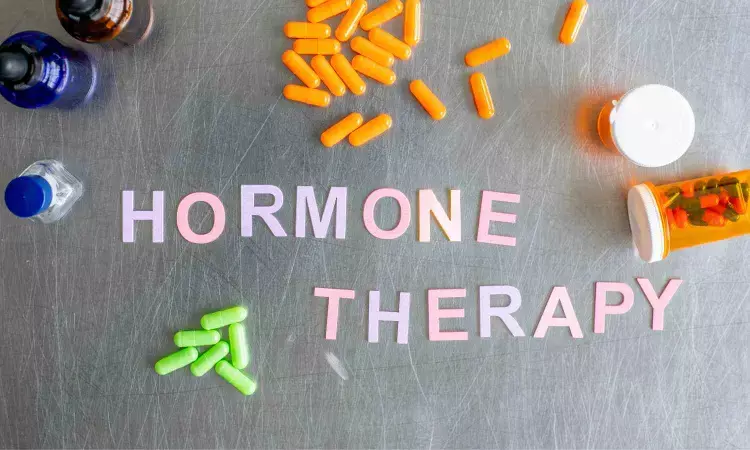- Home
- Medical news & Guidelines
- Anesthesiology
- Cardiology and CTVS
- Critical Care
- Dentistry
- Dermatology
- Diabetes and Endocrinology
- ENT
- Gastroenterology
- Medicine
- Nephrology
- Neurology
- Obstretics-Gynaecology
- Oncology
- Ophthalmology
- Orthopaedics
- Pediatrics-Neonatology
- Psychiatry
- Pulmonology
- Radiology
- Surgery
- Urology
- Laboratory Medicine
- Diet
- Nursing
- Paramedical
- Physiotherapy
- Health news
- Fact Check
- Bone Health Fact Check
- Brain Health Fact Check
- Cancer Related Fact Check
- Child Care Fact Check
- Dental and oral health fact check
- Diabetes and metabolic health fact check
- Diet and Nutrition Fact Check
- Eye and ENT Care Fact Check
- Fitness fact check
- Gut health fact check
- Heart health fact check
- Kidney health fact check
- Medical education fact check
- Men's health fact check
- Respiratory fact check
- Skin and hair care fact check
- Vaccine and Immunization fact check
- Women's health fact check
- AYUSH
- State News
- Andaman and Nicobar Islands
- Andhra Pradesh
- Arunachal Pradesh
- Assam
- Bihar
- Chandigarh
- Chattisgarh
- Dadra and Nagar Haveli
- Daman and Diu
- Delhi
- Goa
- Gujarat
- Haryana
- Himachal Pradesh
- Jammu & Kashmir
- Jharkhand
- Karnataka
- Kerala
- Ladakh
- Lakshadweep
- Madhya Pradesh
- Maharashtra
- Manipur
- Meghalaya
- Mizoram
- Nagaland
- Odisha
- Puducherry
- Punjab
- Rajasthan
- Sikkim
- Tamil Nadu
- Telangana
- Tripura
- Uttar Pradesh
- Uttrakhand
- West Bengal
- Medical Education
- Industry
Hormone therapy usage rates still low despite proven benefits, unravels research

The Menopause Society's 2022 Hormone Therapy Position Statement advises that women aged older than 65 years can continue using hormone therapy (HT) with appropriate counseling and risk assessment. A new retrospective analysis demonstrates that it’s not unusual for women aged as old as 80 years to still benefit from HT. Results of the analysis will be presented at the 2024 Annual Meeting of The Menopause Society in Chicago September 10-14.
It’s estimated that 70% to 80% of women experience menopause symptoms that adversely affect their quality of life and productivity. Hormone therapy has remained the most proven-effective means for managing many of the symptoms, especially hot flashes. The average duration of hot flashes is 7 to 11 years. However, up to 40% of women in their 60s and 10% to 15% in their 70s continue to have hot flashes.
A new retrospective analysis of more than 100 women aged older than 65 years who are still using HT sought to examine the characteristics and motivations of these women, as well as the benefits they are realizing while remaining on HT.
The mean age of participants in the analysis was 71 years, with nearly 8% aged 80 years or older. The mean age at which participants started HT was 52 years, roughly 2 years after the mean age of menopause. On average, participants were on HT for 18 years, although 42% had been regular users for more than 20 years.
The most common reason for participants to continue HT beyond age 65 years was to control hot flashes (55%), followed by a desire for a better quality of life (29%), and a reduction in chronic pain and arthritis symptoms (7%).
More than one-quarter (26.4%) of participants tried stopping HT once, but 87% of these women reported that recurrence of hot flashes was the main reason to restart HT. Most participants (nearly 88%) used a transdermal form of estrogen, whereas only 12% used oral estrogen pills. Less than 5% of participants used synthetic progestins.
Although some adverse effects were documented, including postmenopausal bleeding, which was the most common, no strokes, myocardial infarctions, or uterine cancers were noted.
“Many women aged beyond 65 years have validated menopause symptoms that severely affect their quality of life, and that’s why they rely on hormone therapy,” says Dr. Meenakshi Goel, lead author of the analysis done under the guidance of Dr. Wendy Wolfman, director of the Menopause and Premature Ovarian Insufficiency Clinic at Mount Sinai Hospital in Toronto. Ontario, Canada. “Healthcare professionals should be more open to considering the continuation of hormone therapy in this age group after appropriate counseling and periodic evaluations for adverse effects or contraindications.”
More detailed results will be discussed at the 2024 Annual Meeting of The Menopause Society as part of the presentation “Retrospective Analysis of the Use of Menopausal Hormone Therapy in Women More Than 65 Years of Age: First Canadian Experience.”
“Extending hormone therapy use might not be the best option for all women,” says Dr. Stephanie Faubion, medical director for The Menopause Society. “However, for most women, it’s not necessary to discontinue hormone therapy simply because they’ve reached a predetermined age. Consideration must be given to their specific risk factors and health status.”
Reference:
Hormone therapy usage rates still low despite proven benefits, The Menopause Society, Meeting: 2024 Annual Meeting of The Menopause Society.
Dr Kamal Kant Kohli-MBBS, DTCD- a chest specialist with more than 30 years of practice and a flair for writing clinical articles, Dr Kamal Kant Kohli joined Medical Dialogues as a Chief Editor of Medical News. Besides writing articles, as an editor, he proofreads and verifies all the medical content published on Medical Dialogues including those coming from journals, studies,medical conferences,guidelines etc. Email: drkohli@medicaldialogues.in. Contact no. 011-43720751


